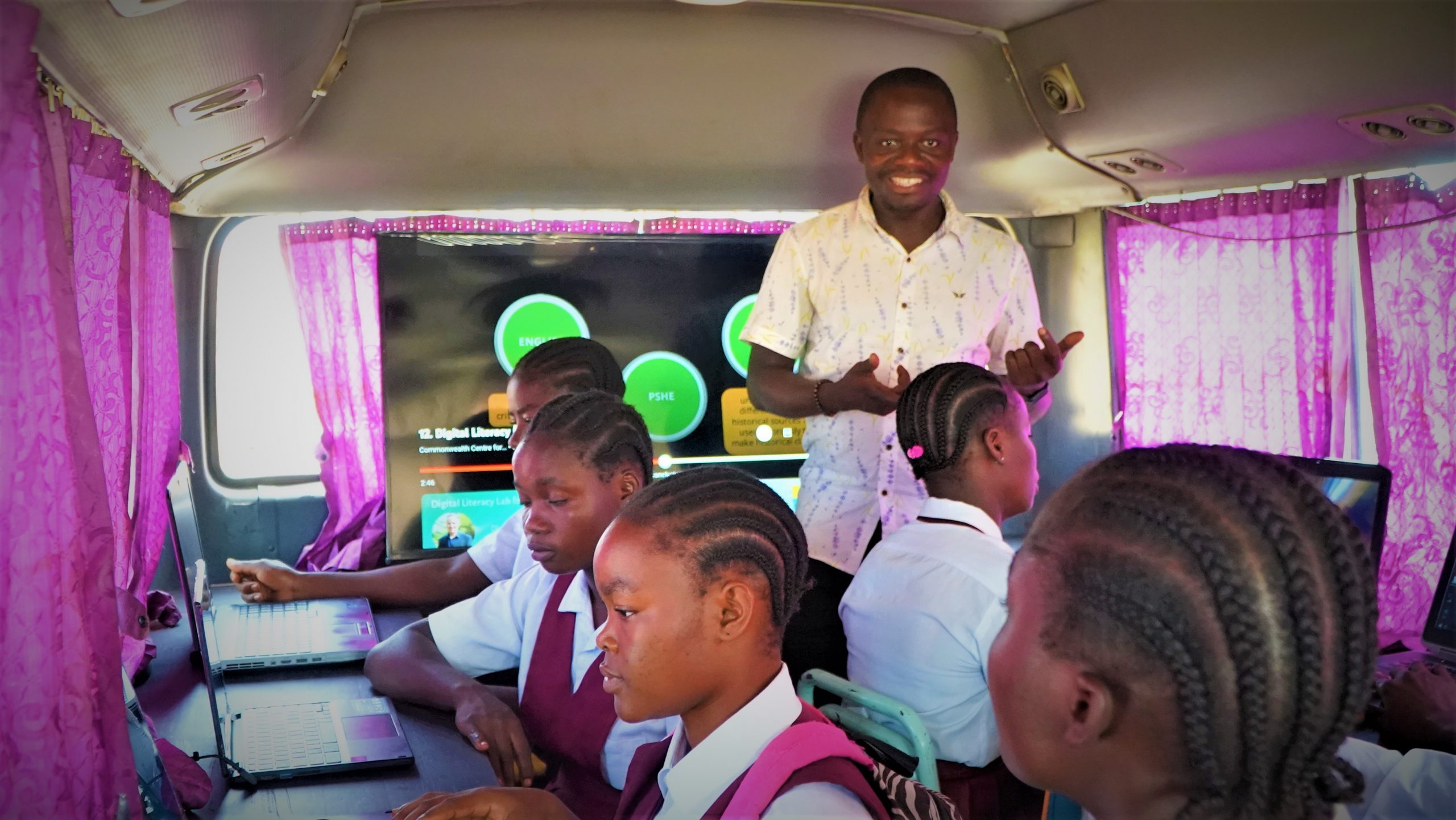Ganta City, Nimba County: A yellow Coaster Bus drives on the campus of the J. W. Pearson High School in Ganta, Nimba County in Northern Liberia, as students look on in awe, apprehensive as to whether they had a field trip planned by the school’s administration unknown to them.
But it was not to drive the students to a destination on a field trip. On board, there were 10 laptops lined up in two rows and a television with the air oozing out of the bus’s air conditioner waiting for the students to learn how to type, the basics of computer as well as other digital literacy skills to prepare them for the real world of life.
The New Breed Technology Training is the social enterprise that has innovatively taken up the task to fight digital illiteracy conducting training on an hourly basis, three days a week for three months per cycle.
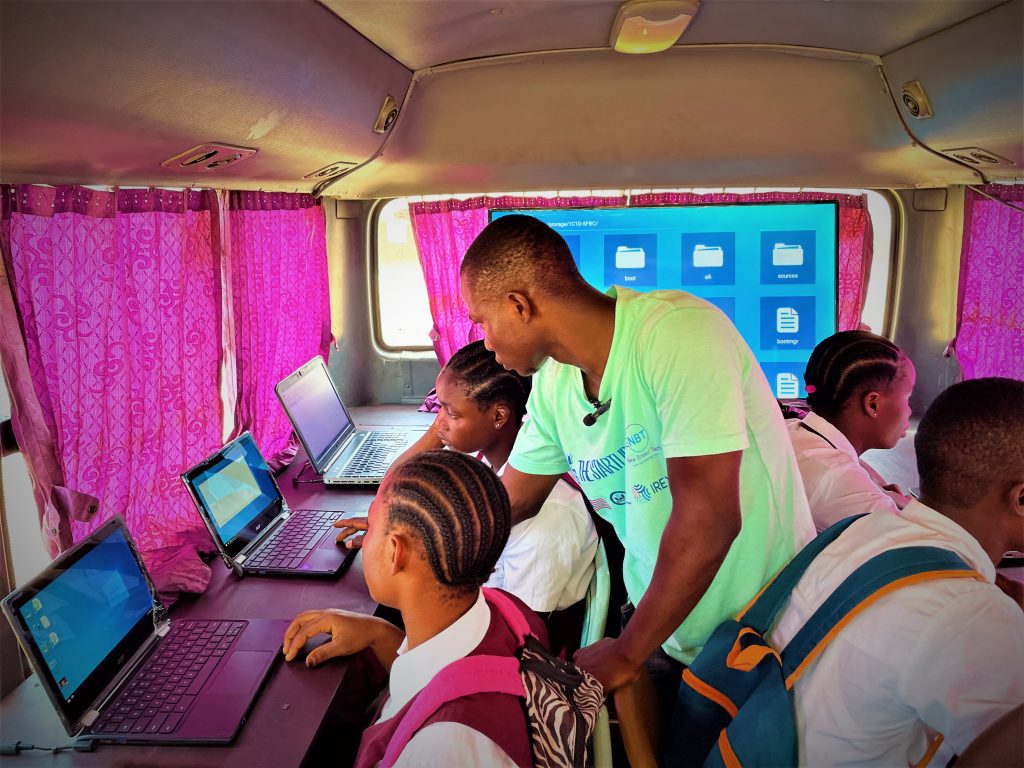
Speaking in an exclusive interview with Kukatonon News in Ganta City, Nimba County, the CEO of New Breed Technology Training, Social entrepreneur, Jeremiah Lloyd Cooper, revealed that the start-up of the mobile computer training lab was based on his dream of extending Computer literacy to children who graduated from high school as his means of contributing to society.
“So I saw the need to be able to bridge the gap with the mobile computer lab because it’s very efficient and effective. I have managed a couple of times to run a stand-alone Lab but to run that kind of computer lab, is very costly” he expressed.
According to him, the mobile computerized innovation lab is equipped in a way that they/(instructors) can move anywhere and conduct short terms or hours of training for children, youth, and women living in impoverished communities.
Explaining the mission of the program, Jeremiah Lloyd Cooper told Kukatonon News, that the mobile computer lab’s mission is to bridge the digital literacy gap in underprivileged communities.
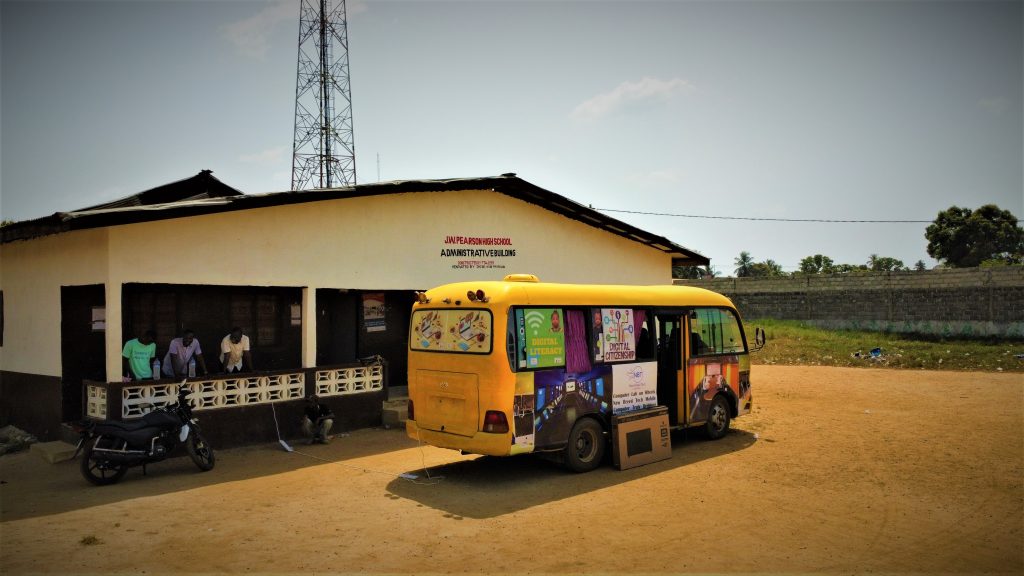
“So, take for instance some towns between Ganta and Gbarnga or Ganta and Sanniquellie or Tappita, you will notice that there is a need for the implementation of this program you have two communities that have high schools and the population within those communities is very massive and more people need those basic computer skills and techniques to be able to meaningfully contribute to our national development but, they have challenges of having access to the basic infrastructure like electricity amongst other things. So the mobile computer lab’s mission is to serve those people. Some days we move between and at other times we travel far away from the conventional computer lab to those who do not have the means of transporting themselves from far away communities to learn computers”; Cooper expounded.
Speaking further, Cooper illustrated that market women, who are selling in the marketplaces, who do not have the luxuries of time to leave their markets to come to a conventional computer lab that is far away from their tables or goods, the mobile computer lab can drive closer to the market and conduct a class in a market where they can easily leave their goods to come for one or two hours, to get some of those skills and tools they need to be able to take their markets or their business idea to another stage.
Cooper at the same time, disclosed that the enrollment thus far is very welcoming as students, keep pulling in to register and form part of the computer literacy program.
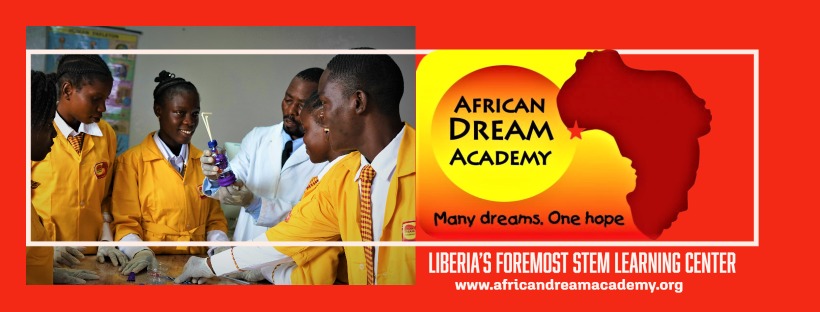
“We have students coming almost every day and as we speak right now, we are on one of our partner’s school campuses. We are trying to finalize the arrangement with them today and it is very populated this year. At this J.W. Pearson High School, we have over 1000 students and, we might want to only focus only on the senior classes. So, there is a very huge demand for our service here, and our doors, are opened for help or partnership to bridge the gap between the illiterate and literate”; he sounded off.
Speaking about the staff and their experiences with the students at the mobile computer lab, Cooper declared that the reception was very cordial and almost every student wants to enter the bus and be seated to learn computer science.
“They found out that it is a very new environment to learn computers and see themselves sitting in the Computer Lab, in a bus parked and are being thought, it is a kind of new experience, almost every student will come, but there’s also another side of it. The other side is that we are mostly dealing with underprivileged community people.
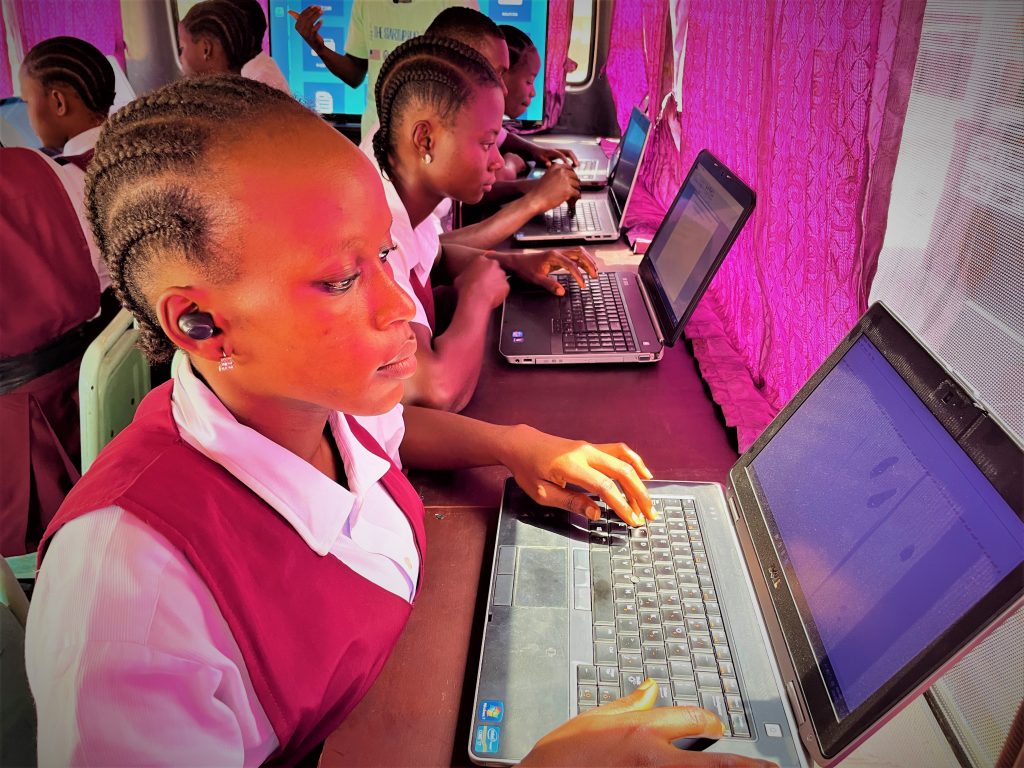
He, however, stated that the project was started through donations but it is not an NGO but rather a social enterprise as they do not want to be a liability to donors.
“We try to sustain the project by collecting minimum fees from our participants, and we are charging minimum fees because the people we are dealing with are students or individuals who are also struggling to make ends meet, thus, we cannot make our demands very high asserted Cooper.
According to him, the program runs in three cycles which include the regular training, which runs for three months which is two hours per session and three times a week, and the second cycle, which is intensive training, runs from one week to two months, 3 hours per section and four times a week while the third cycle is the customized training.
“The customized training is where we partner with other institutions that come to implement some kind of training like say QuickBooks or we have a group of people, who come here interested in learning graphic designs. Cooper furthered.

